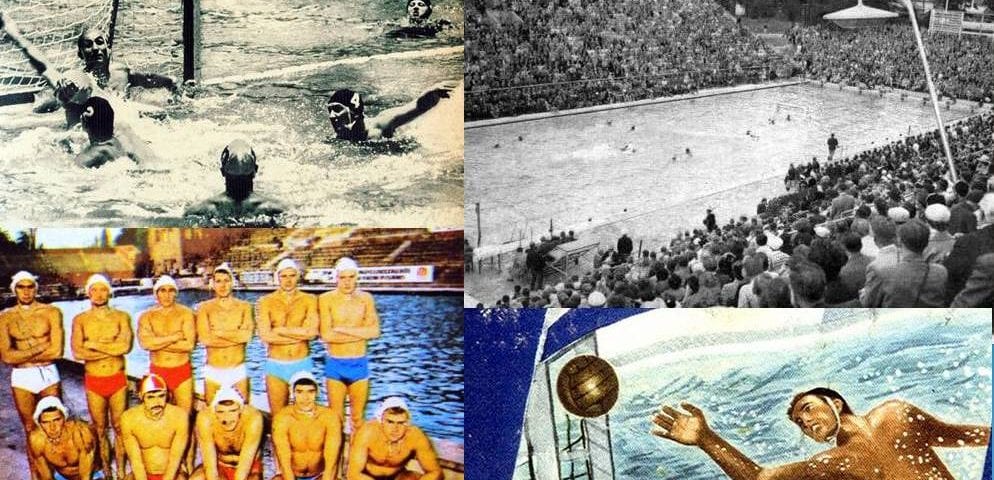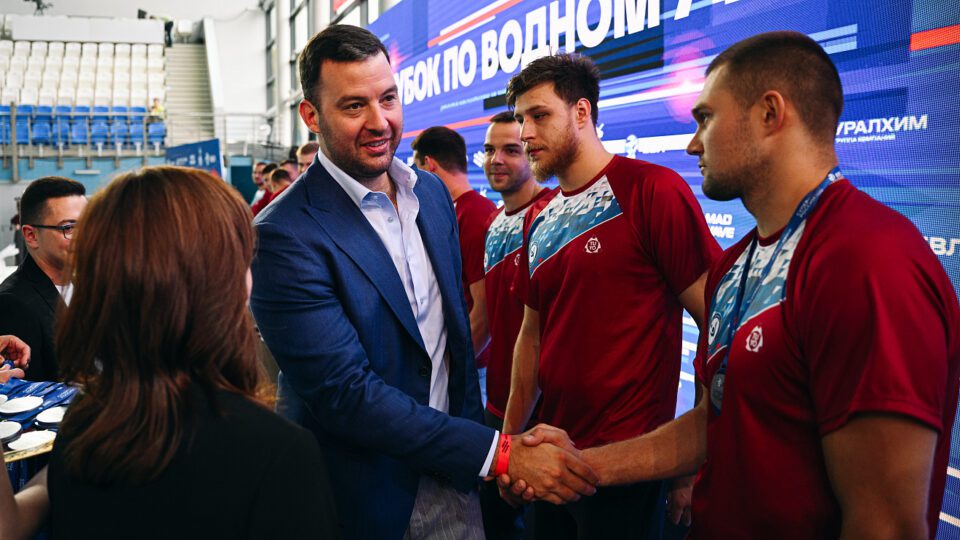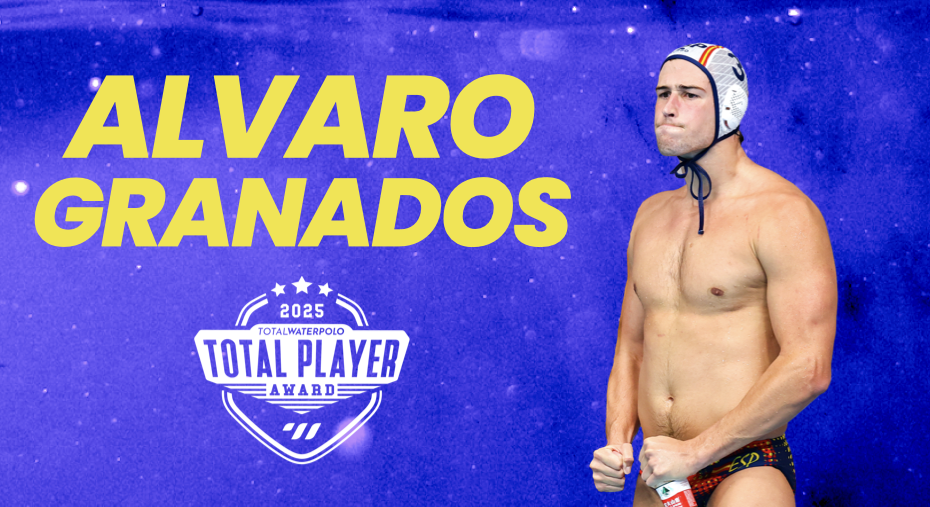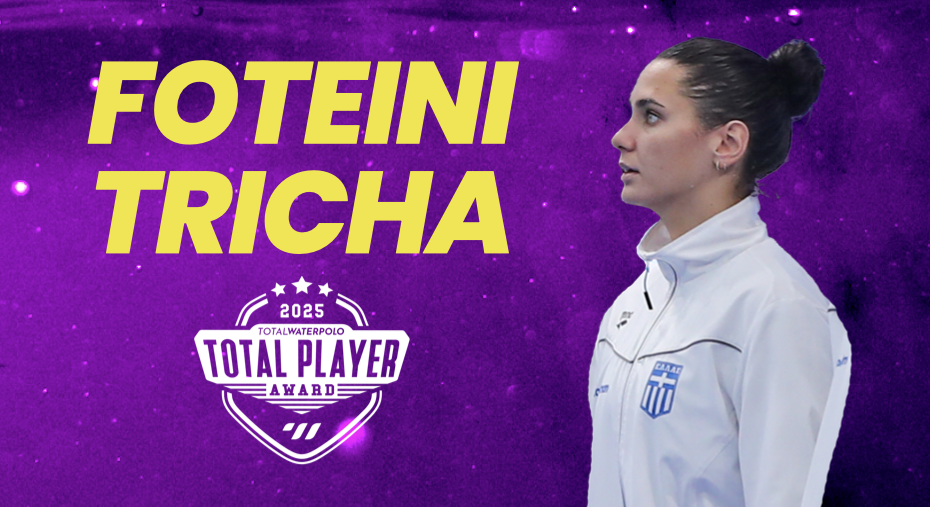Everybody who loves sport knows what the term “lucky loser” means. A lucky loser is an athlete or a team that loses a match in the qualifying round, but that later still gets a chance to battle for a medal.
Our new article in the series of stories about the water polo history isn’t a story about lucky losers, but something completely different.
From the 1930s to the 1980s, there were no medal matches at most of the major water polo competitions. The best four (sometimes the best six, or even eight) teams of the tournaments competed in the final groups, which were organized on a round-robin basis.
In a round-robin system with a relatively small number of matches, a goal difference was often necessary to determine the rankings. Sometimes, the goal difference was crucial in the battle for the gold medal.
Several times, a team didn’t suffer a loss but didn’t climb the highest step of the podium.
This is an article about the teams which finished the tournaments unbeaten but didn’t manage to win the gold medal.
Olympic Games
Berlin, 1936
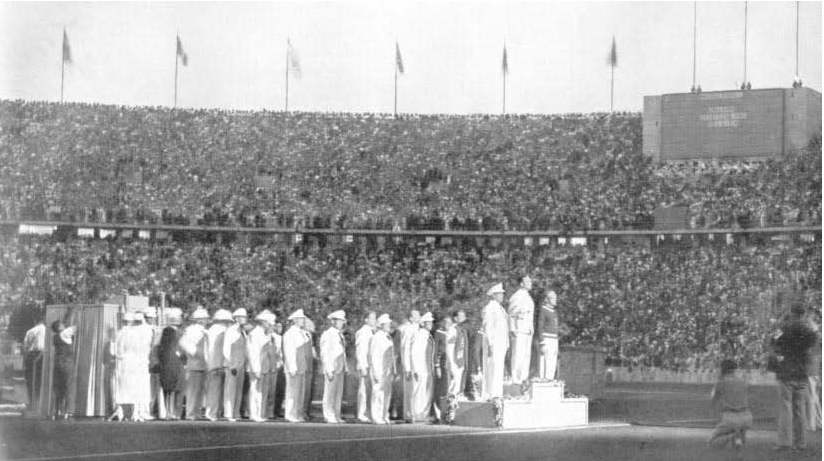
Awarding ceremony after the water polo tournament in Berlin was held in the Olympic Stadium Photo: Official Olympic report
In Berlin, in 1936, the two best teams were equal in points for the first time in the Olympic water polo history. Hungary and Germany collected five points each (two wins and a draw). The encounter between the two sides was ended in a 2:2 draw. Germany had a superior goal difference, but Hungary won the gold since the goal average, not the goal difference, was used to determine the ranking.
Final group: 1.Hungary 5 pts (goal difference 10:2, goal average 5.0), 2. Germany 5 (g.d. 14:4, g.a. 3.5), 3. Belgium 2, 4. France 0.
Helsinki, 1952
Hungary won the Olympic gold medal in Helsinki in 1952 ahead of Yugoslavia, thanks to a goal difference.
These two neighbors met in the semifinal group. The score was 2:2, and that draw was carried to the final group.
The Hungarians were very convincing in both their matches in the final group (a 7:2 win over Italy, and 4:0 against the USA), and Yugoslavia recorded two 2-goal wins (4:2 against the USA and 3:1 against Italy) and Hungary finished 1st.
Final group: 1. Hungary 5 (13:4), 2. Yugoslavia 5 (9:5), 3. Italy 2, 4. USA 0.
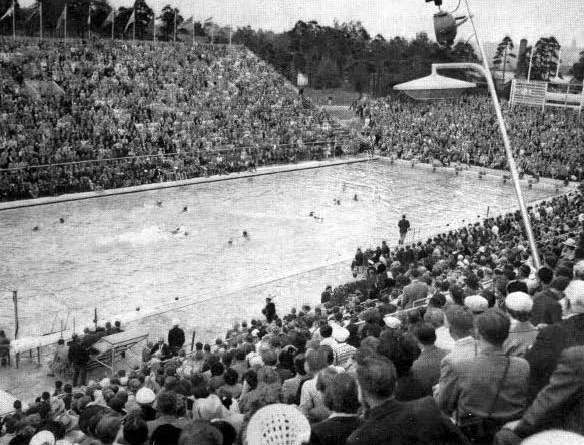
Packed stands during the Olympic tournament in Helsinki in 1952. Photo: Official Olympic report
Tokyo 1964
The finish of the water polo tournament at the 1964 Olympic Games was very similar to the endings of the competition held in Helsinki 12 years earlier.
Hungary and Yugoslavia faced off in the semifinal group. Yugoslavia led 3:0 and 4:3, but Hungary secured a point in the last quarter – 4:4.
Both teams advanced to the final group. Hungary beat Italy 3:1 on Day 1 of the final group. Yugoslavia also recorded a 2-goal victory (2:0 over USSR). On the last day, Yugoslavia defeated Italy narrowly (2:1), while Hungary played against the USSR in the last game of the tournament. After the third quarter, the score was 2:2. The Hungarians scored three unanswered goals in the fourth period for a 5:2 win and secured the gold medal. Their goal difference was +5, and Yugoslavia had +3.
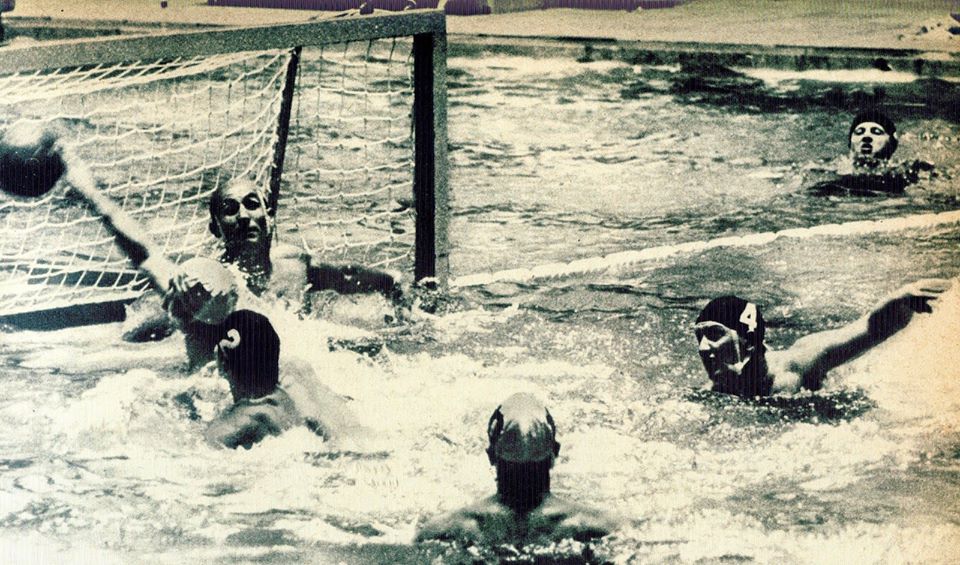
Match Hungary-USSR in Tokyo 1964 Photo: Waterpolo Legends/FB
Final group: 1. Hungary 5 (12:7), 2. Yugoslavia 5 (8:5), 3. USSR 2, 4. Italy 0.
Munich 1972
The goal difference and the goal average helped Hungary to win the Olympic titles in 1936, 1952, and 1964. But, this kind of luck wasn’t on the Hungarians’ side at the 1972 Olympic Games in Munich. Forty-eight years ago in Munich, Hungary was the team that didn’t suffer a loss but returned home with no gold medal.
Six teams played in the final group.
The first place was decided in the last game of the tournament USSR vs. Hungary. Before the final day, each of the teams had 7 points (three wins and a draw). The Soviet Union bettered West Germany (4:2), Yugoslavia (5:4), and Italy (4:1) and shared the points with the United States (6:6). Hungary recorded victories over the USA (5:3), Yugoslavia (4:2), and Italy (8:7), while the encounter between the Hungarians and the Germans ended with no winner (3:3).
The Soviet Union had a better goal difference by just a goal a day before the end. So Hungary had to defeat the Soviets in the last game to climb into the 1st place. The Hungarians got a good start and led 3:1. Still, the match ended with no winner – 3:3 and the USSR team clinched its first Olympic gold medal in water polo.
Final group: 1. USSR 8 (22:16), 2. Hungary 8 (23:18), 3. USA 6, 4. West Germany 3 (15:18), 5. Yugoslavia 3 (20:24), 6. Italy 2.
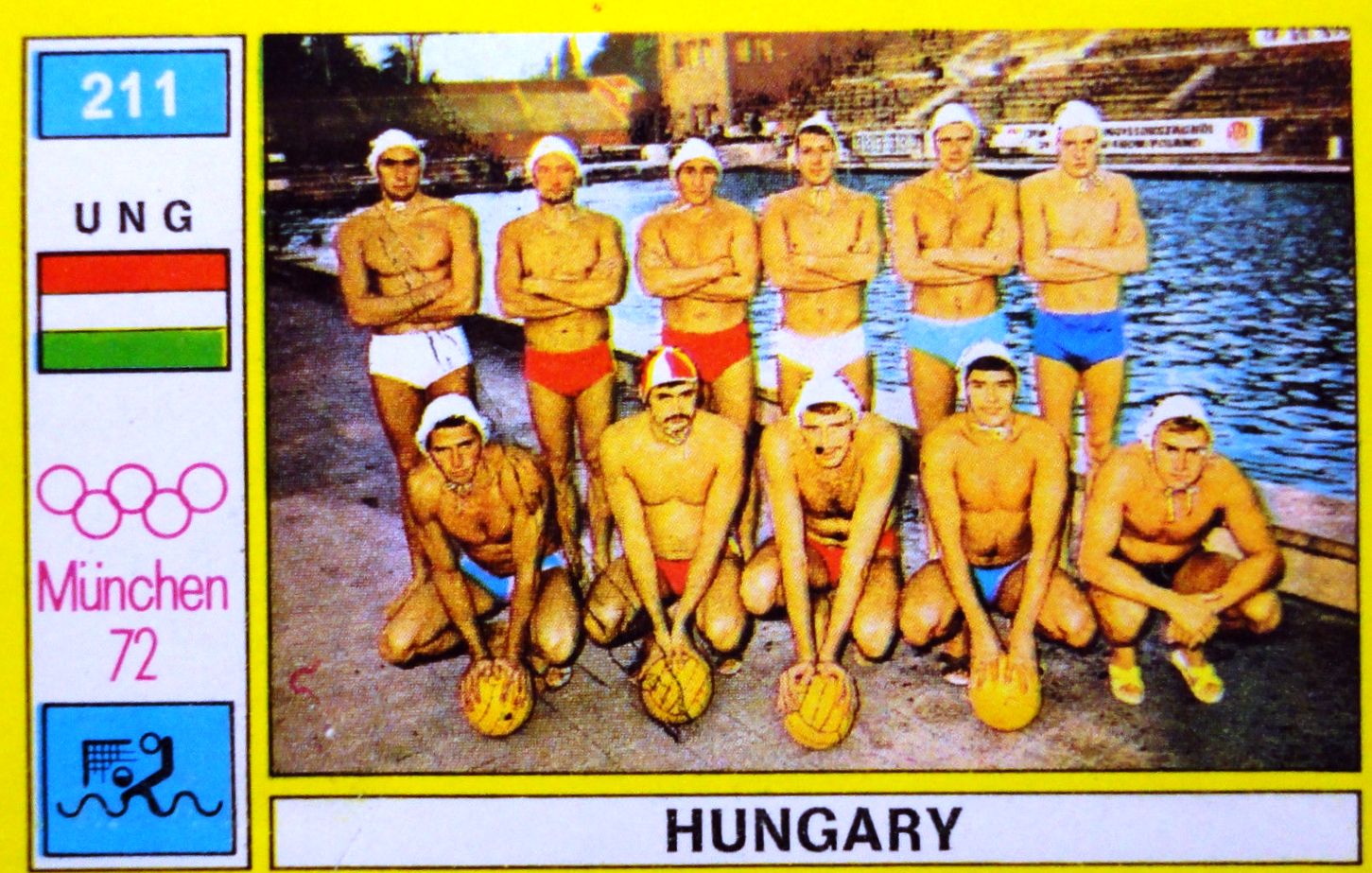
Photo: Panini sticker
Los Angeles 1984
In Los Angeles in 1984, the final group was played for the last time at the major competitions.
The Games were closed by the encounter between Yugoslavia and the USA. Before this match, the two teams recorded 6 wins (3 in the preliminary stage and 3 in the final group) and they were equaled in points (8 points in the final group). But, Yugoslavia was in advantage because of the goal difference (Yugoslavia had +14, USA +9). The Yugoslavs needed a point to keep the 1st position.
Yugoslavia had a slim 2:1 advantage early in the second quarter of the game against the Americans. However, Team USA responded with four goals in a row and jumped to a 5:2 lead in the middle of the third quarter. But, the Yugoslavs came back. They kept the hosts goalless in the remaining time and scored three goals to take a valuable point. The match ended in a tie – 5:5 and a point was enough for Yugoslavia to retain the 1st place in the final group and to win the gold medal.
Final group: 1. Yugoslavia 9 (47:33), 2. USA 9 (43:34), 3. West Germany 5, 4. Spain 4, 5. Australia 3, 6. Netherlands 0.
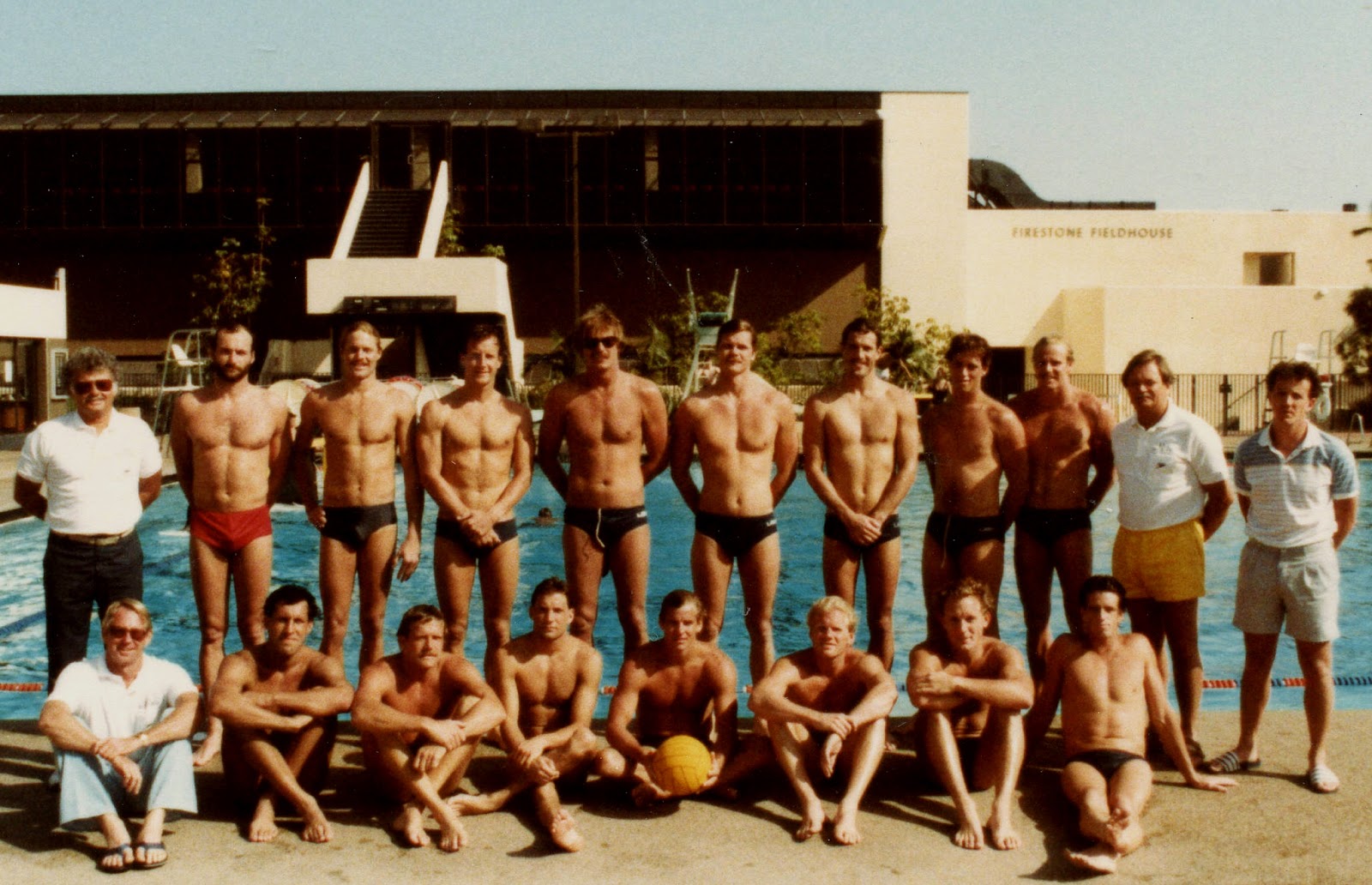
Team USA, silver medalist in Los Angeles Photo Pepperdine University
European Championships
Paris, 1931
The goal difference wasn’t crucial in a hunt for the gold medal, but the runner-up didn’t suffer a loss at the 3rd European Championships in Paris. Germany, the reigning Olympic champion, and Hungary, which won silver at the 1928 Olympic Games, were favorites for the gold medal.
Their encounter in Paris was ended with no winner (2:2). Hungary recorded five wins in the other five games. Germany also remained unbeaten, but with four wins and two ties (2:2 in the match against Hungary, and 3:3 against Belgium) and had to satisfy with the silver medal.
Final ranking: 1. Hungary 11, 2. Germany 10, 3. Austria 6, 4. Belgium 5, 5. Czechoslovakia 4, 6. France 3 (14:27), 7. Sweden 3 (13:28).
Turin, 1954
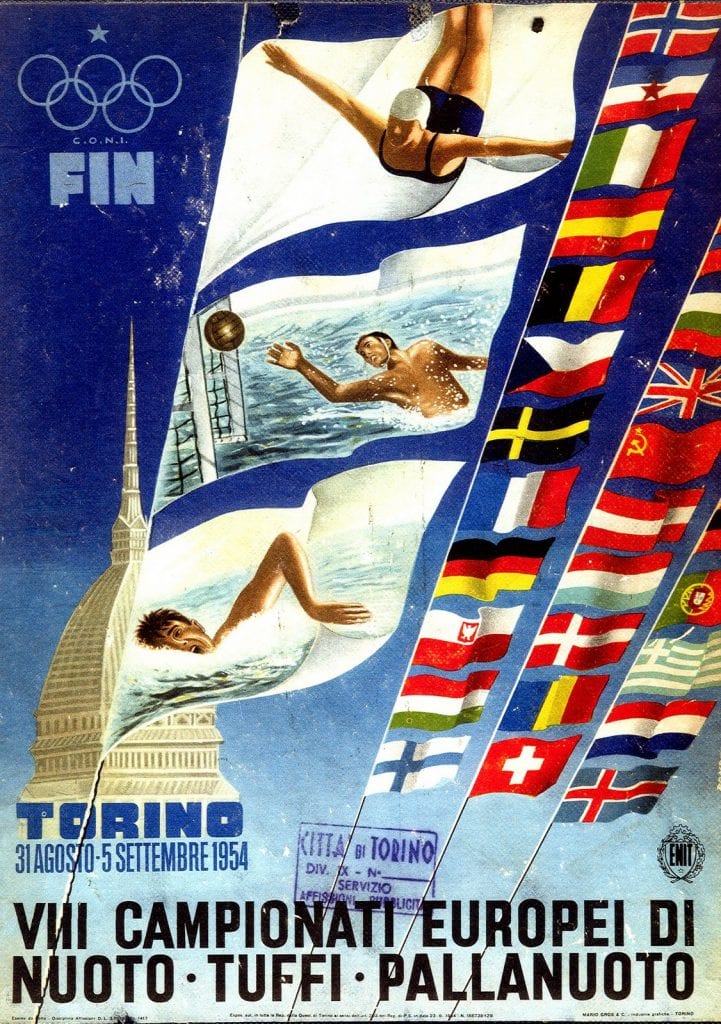
The eight European Championship was held in Turin (Italy). Four teams played in the group for the title.
Hungary and Yugoslavia carried a 3:3 draw from the semifinal to the final group. Yugoslavia defeated Italy 3:1 and Netherlands 4:0 in the group for the title, but Hungary was more convincing. The Hungarians achieved an 8:3 victory over the Netherlands and 8:1 against Italy and won the gold.
Final group: 1. Hungary 5 (19:7), 2. Yugoslavia 5 (10:4), 3. Italy 2, 4. Netherlands 0.
Leipzig, 1962
The water polo tournament at the 1962 European Championships in Leipzig offered a very balanced battle for medals.
Hungary won five points in the final group (wins over Yugoslavia 3:2, and East Germany 4:3 and a 2:2 draw in the game against the USSR).
The Hungarians clinched the gold, while the Soviet Union and Yugoslavia shared the silver medal. USSR completed the tournament with no loss, but the Soviets didn’t achieve a win in the final group (2:2 against Hungary, 2:2 against East Germany, and the “carried” draw with Yugoslavia from the semifinals -3:3). Yugoslavia suffered a loss to Hungary -2:3, but defeated East Germany 1:0. USSR and Yugoslavia finished the group with the same number of points – 3, and the same goal difference and they shared the silver medal. The bronze wasn’t awarded.
According to today’s rules, Yugoslavia would secure silver, while the USSR would finish 3rd because a victory in the LEN’s competitions is worth 3 points. Yugoslavia would have 4, and the USSR 3 points.
Final group: 1. Hungary 5, 2. USSR 3 (7:7), 2. Yugoslavia 3 (6:6), 4. East Germany 1.
Strasbourg, 1987
Eight teams played a round-robin tournament in the group for the title at the 1987 European Championships in Strasbourg. The Soviet Union won the gold. It was just a point ahead of Yugoslavia.
Although Yugoslavia wasn’t defeated, it didn’t clinch the winning trophy. The goal difference wasn’t decisive, but the number of draws. Yugoslavia and USSR shared the points (9:9) on the last day. Before that game, the team of the Soviet Union beat all other rivals, while Yugoslavia recorded five wins and took a point in the match against Italy (7:7).
Final ranking: 1. USSR 13, 2. Yugoslavia 12, 3. Italy 11, 4. West Germany 8, 5. Hungary 6, 6. Spain 4, 7. Romania 2, 8. Bulgaria 0.
World Championships
Guayaquil, 1982
The goal difference didn’t decide the gold-medal winner at the 4th World Championships in Guayaquil (Ecuador). However, one team remained unbeaten but didn’t win the title.
The Soviet Union won the gold, with five points in the final group (wins over the Netherlands – 7:5 and West Germany 11:8 and a 7:7 draw in the match with Hungary). Hungary also didn’t suffer a loss at the Championships, but it collected a point less than USSR in the final group. Hungary beat Netherlands 7:6 and shared the points with Germany (7:7) to finish in the silver position.
Final group: 1. USSR 5, 2. Hungary 4, 3. West Germany 3, 4. Netherlands 0.
Champions’ Cup
Belgrade, 1970/71
Partizan was the host of the final group of the 1970/71 European Cup for national champions (Champions’ cup) in Belgrade. Two Yugoslavian teams took part in the tournament. Partizan entered the Champions’ Cup as the current national champion, while Mladost Zagreb was the defending European champion from the previous season. Besides the Yugoslavs, Dynamo Moscow and SSK Stockholm secured themselves spots in the final group.
At the end of the tournament, Partizan and Mladost each collected 5 points (two wins and a draw). The Yugoslav derby was ended with no winner (4:4), and Partizan clinched the title as it had superior goal difference.
Final group: 1. Partizan 5 (15:9), 2. Mladost 5 (13:11), 3. Dynamo Moscow 2, 4. SSK Stockholm.
Tiny differences in Utrecht and Dubrovnik
The European Championships held in Utrecht in 1966 and the final tournament of the 1980/81 Champions Cup don’t really belong to our story, because there were no unbeaten teams that returned home with no gold medal. But, the two competitions should be mentioned. Tiny differences were decisive for the final standing at these exciting tournaments.
Utrecht, 1966
Before the last day of the 1966 European Championships in Utrecht, East Germany was atop of the final group with four points (wins over Yugoslavia and Italy). The Germans faced the Soviet Union in the last match. The USSR had two points (draws in the matches against Yugoslavia and Italy). The crucial game saw just one goal – USSR won 1:0. That goal was enough for the Soviets to catch the Germans in points and jump to the first place, thanks to a win in a head-to-head contest and a small advantage in a goal difference (USSR 5:4, Germany 4:3).
Final group: 1. USSR 4 (5:4), 2. East Germany 4 (4:3), 3. Yugoslavia 3, 4. Italy 1.
Dubrovnik, 1980/81
The final tournament of the 1980/81 European Cup was held in Kupari, near Dubrovnik.
In the first round, Spandau 04 Berlin beat host Jug Dubrovnik 6:4, while Vasas Budapest, the defending European champion, and Ethnikos Piraeus shared the points 4:4. On Day 2, Vasas defeated Spandau 8:2, and Jug beat Ethnikos 9:6. Before the 3rd round, Vasas was atop with 3 points. Jug was in the 2nd, and Spandau in the 3rd place. On Day 3, Jug blew away the defending champion Vasas 8:2 and jumped into the 1st place, because Spandau beat Ethnikos just by two goals (7:5)
Final group: 1. Jug 4 (21:14), 2. Spandau 4 (15:17), 3. Vasas 3, 4. Ethnikos 1.



